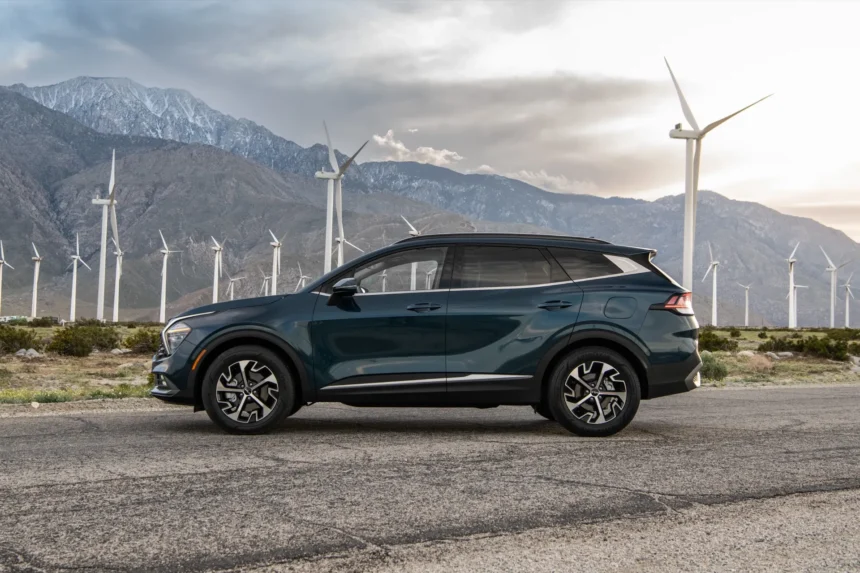In today’s world, finding an affordable car that doesn’t skimp on quality can be a challenge. But fear not, because the cheapest cheap car on the market is actually a hybrid, and it comes from the reliable brand of Toyota. The Toyota Corolla Hybrid is not only affordable, with a price tag under $30,000, but it also boasts an impressive fuel economy of 50 mpg combined. This means that over five years, you could save $3,250 in fuel costs compared to a non-hybrid Corolla.
While Toyota has long been a leader in hybrid technology, other automakers have also jumped on the bandwagon, offering affordable hybrid options in various vehicle types. From small sedans to hatchbacks to even pickup trucks, there is a wide range of inexpensive hybrid cars available on the market today.
One such option is the Nissan Versa, priced at $18,330, making it the only new car sold for less than $20,000 in 2025. However, there are still plenty of other new cars priced under $25,000, including the Toyota Corolla Hybrid, which stands out for its affordability and fuel efficiency.
What sets these hybrid models apart is not just their lower cost of ownership, but also the standard safety features they come equipped with. From automatic emergency braking to active lane control, these cars prioritize the safety of both the driver and passengers.
Let’s take a closer look at some of the cheapest hybrids available on the market today:
Toyota Corolla Hybrid
- Fuel economy: The Corolla Hybrid LE and XLE offer an impressive 53 mpg city, 46 highway, and 50 combined. The SE model, with larger wheels, still boasts a commendable 50/43/47 mpg rating.
- Price range and trims: Available in LE ($24,760), SE ($27,200), and XLE ($29,125) trims.
- Powertrain: A 138-hp 1.8-liter inline-4 engine paired with two electric motors and front-wheel drive (all-wheel drive available as an option).
- Passenger and cargo space: The Corolla Hybrid offers seating for five but has limited rear legroom. The trunk has a capacity of 13.1 cubic feet.
- Standard standout features: Features include adaptive cruise control, an 8.0-inch touchscreen with wireless Android Auto and Apple CarPlay, and available AWD.
These are just a few examples of the affordable hybrid options available on the market today. With their combination of cost-effectiveness, fuel efficiency, and standard safety features, these cars offer a compelling choice for budget-conscious consumers looking for a reliable and eco-friendly vehicle.
The 2025 Toyota Camry is making waves in the sedan market with its reputation-changing design and impressive features. One standout feature of the Camry is its spacious hatch, which holds up to 23.8 cubic feet of cargo. This makes it a practical choice for those who need to transport a lot of gear or luggage.
In addition to its spacious hatch, the Camry offers a range of standard features that set it apart from the competition. With an impressive fuel economy rating of up to 57 mpg, the Camry is a fuel-efficient choice for eco-conscious drivers. The available all-wheel drive option adds to the versatility of the Camry, making it a great choice for those who need extra traction in inclement weather.
The Camry also comes equipped with an 8.0-inch touchscreen that features wireless Android Auto and Apple CarPlay. This makes it easy to stay connected and entertained on the go, whether you’re using navigation, streaming music, or making hands-free calls.
When it comes to pricing, the Camry is available in four trim levels: LE, SE, XLE, and XSE. The base LE model starts at $29,495, with prices increasing for higher trim levels and the addition of all-wheel drive.
Under the hood, the Camry is powered by a 2.5-liter inline-4 engine and two motors that produce 225 horsepower in front-wheel drive models. The all-wheel drive model gets a boost to 232 horsepower thanks to an extra motor.
Overall, the 2025 Toyota Camry is a standout choice in the sedan market, offering a spacious hatch, impressive fuel economy, and a range of standard features that set it apart from the competition. Whether you’re looking for a practical daily driver or a fuel-efficient option for long road trips, the Camry has something for everyone. The advancements in artificial intelligence (AI) technology have been gaining momentum in recent years, with the potential to revolutionize various industries. AI systems are now able to perform tasks that were once thought to be exclusive to human intelligence, such as language translation, image recognition, and even driving cars. As AI continues to develop at a rapid pace, the possibilities for its applications are seemingly endless.
One of the most significant impacts of AI technology is in the healthcare industry. AI systems are being used to analyze medical data and assist in diagnosing diseases, predicting patient outcomes, and personalizing treatment plans. For example, AI algorithms can scan medical images to detect abnormalities or patterns that may be missed by the human eye, leading to earlier detection of diseases such as cancer. Additionally, AI-powered chatbots are being used to provide patients with personalized health recommendations and support, improving access to healthcare services.
In the field of finance, AI is being used to optimize trading strategies, detect fraud, and assess credit risk. AI algorithms can analyze vast amounts of financial data in real-time to identify patterns and trends, enabling more informed investment decisions. This has the potential to improve the efficiency and accuracy of financial markets, leading to increased profitability for businesses and investors.
In the transportation industry, AI technology is being integrated into self-driving cars, drones, and traffic management systems. Self-driving cars use AI algorithms to navigate roads, detect obstacles, and make real-time decisions, potentially reducing accidents and improving traffic flow. Drones equipped with AI technology can be used for tasks such as delivering packages, monitoring crops, and conducting search and rescue missions. AI-powered traffic management systems can optimize traffic flow, reduce congestion, and improve safety on roadways.
AI technology is also making significant advancements in the field of manufacturing. AI-powered robots are being used to automate repetitive tasks, improve product quality, and increase production efficiency. These robots can adapt to changing conditions in real-time, making them ideal for tasks that require precision and flexibility. Additionally, AI algorithms are being used to analyze manufacturing data and predict maintenance needs, reducing downtime and improving overall equipment effectiveness.
Overall, the advancements in AI technology have the potential to transform various industries, improving efficiency, accuracy, and productivity. As AI continues to develop, it will be crucial for businesses to embrace this technology and explore its potential applications in order to stay competitive in the rapidly evolving market landscape.






